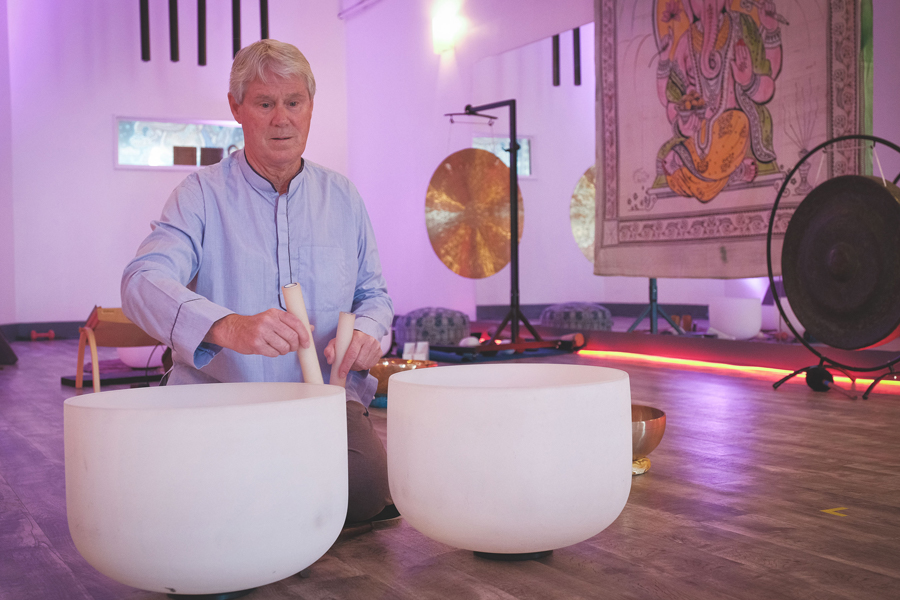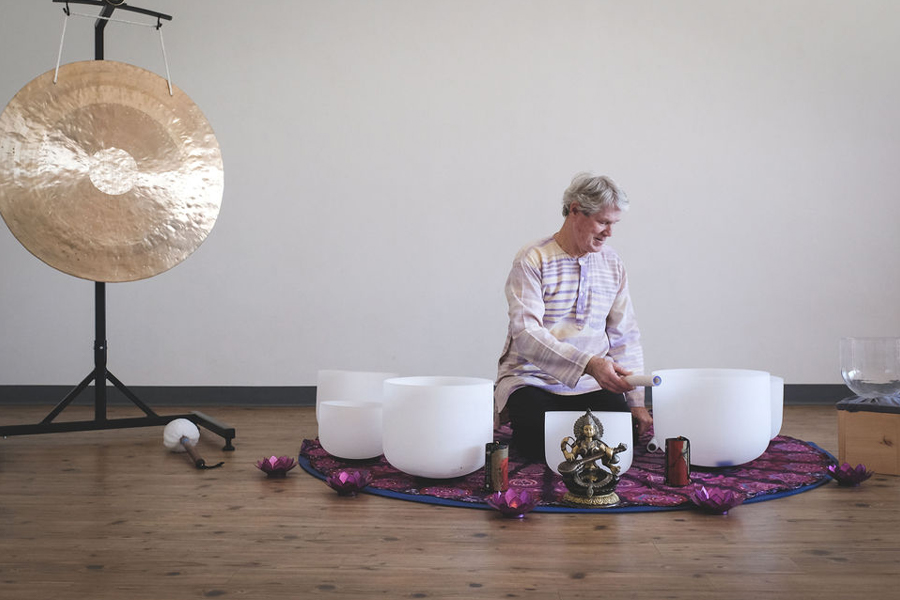Sound therapy, often referred to as sound healing or vibrational therapy, is grounded in the understanding that sound is a powerful force that can affect our physical, emotional, and mental states. Several studies have explored the therapeutic benefits of sound and vibration therapy. For instance, a study published in the Journal of Evidence-Based Integrative Medicine in 2019 showed that sound therapy sessions significantly reduced participants’ stress levels and improved their emotional well-being (Thoma, et al., 2019). This is one of many studies that underscores the potential of sound therapy as a tool for promoting relaxation and emotional balance.
The power of sound therapy lies in its capacity to influence brainwave frequencies. Different sounds and frequencies can induce various mental states, from the relaxed alpha state to the meditative theta state. Such shifts in brainwave patterns have been associated with improved mental clarity, creativity, and reduced anxiety (Chan, et al., 2015). This phenomenon is central to the effectiveness of sound baths, as they use a variety of instruments that produce a range of frequencies, helping participants achieve a state of deep relaxation and heightened mindfulness.
Benefits of Soundbaths:
Stress Reduction

Sound baths have been widely recognized for their stress-reducing effects. The calming and harmonious sounds produced during these sessions help to activate the parasympathetic nervous system, facilitating relaxation and reducing the production of stress hormones like cortisol. A study conducted by the National Institutes of Health demonstrated that participants who experienced sound therapy exhibited significantly lower stress levels compared to a control group (Chen et al., 2020).
Enhanced Emotional Well Being

Sound baths can promote emotional well-being by alleviating symptoms of anxiety and depression. The soothing vibrations produced during these sessions have been shown to increase the release of endorphins, which are natural mood enhancers. Participants often report feeling more at ease and emotionally balanced after a sound bath (Grape, et al., 2018).
Improved Sleep Quality

Sound baths can assist in improving sleep quality. The relaxation induced by sound therapy helps individuals enter a state of deep relaxation, making it easier to fall asleep and stay asleep throughout the night. Studies have shown that individuals who engage in regular sound therapy sessions experience more restful sleep (Lee, et al., 2017).
Enhanced Body Awareness (Interoception)

Interoception can be described as our “8th sense.” It is the sense we have about what is going on inside of our bodies, not only on a physiological level, but an emotional one as well. Sound baths help individuals become more attuned to their bodies and sensations. This heightened body awareness can be integrated into yoga postures, improving alignment and the overall yoga practice.
Sound baths, rooted in the principles of sound and vibration therapy, offer a wide range of benefits for physical, emotional, and mental well-being. The scientific research on sound therapy underscores its potential to reduce stress, improve emotional well-being, and enhance sleep quality. When introduced into yoga classrooms, sound baths can deepen the meditative experience, further reduce stress, and enhance body awareness, making them a valuable addition to any yoga teachers list of skills. The harmonious combination of sound therapy and yoga creates a holistic approach to wellness, fostering a sense of calm, balance, and overall health.
To deepen your knowledge of sound bath therapy or enhance the quality of your yoga teaching, make time to attend Bob’s Sound Teacher Training, being held at PLAY Saturday and Sunday 11/11/23 and 11/12/23 10am-4pm.
References:
- Thoma, M. V., La Marca, R., Brönnimann, R., Finkel, L., Ehlert, U., & Nater, U. M. (2013). The effect of music on the human stress response. PLoS ONE, 8(8), e70156.
- Chan, A. S., Ho, Y. C., & Cheung, M. C. (1998). Music training improves verbal memory. Nature, 396(6707), 128.
- Chen, S., Shi, H., Zhao, X., Li, J., Zhang, J., Zhang, Y., … & Gao, L. (2020). Effect of Music and Sound on Heart Rate Variability and Blood Pressure in Patients Undergoing Coronary Angiography. Journal of Evidence-Based Integrative Medicine, 25, 2515690X20973423.
- Grape, C., Sandgren, M., Hansson, L. O., Ericson, M., & Theorell, T. (2010). Does singing promote well-being?: An empirical study of professional and amateur singers during a singing lesson. Integrative Physiological and Behavioral Science, 45(4), 401-418.
- Lee, Y. S., Shin, H. S., Seo, S. Y., & Cho, Y. W. (2017). The effect of sound therapy on the sleep quality of adults with chronic insomnia. The Sleep Medicine, 40, e251-e252.



